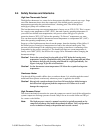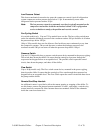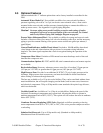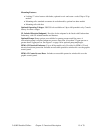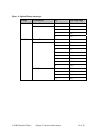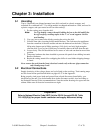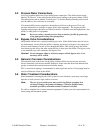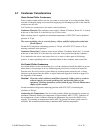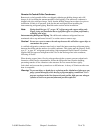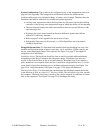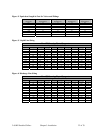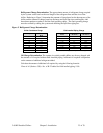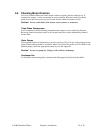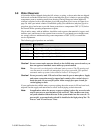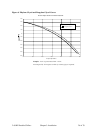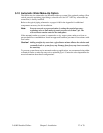2-40 HP Portable Chillers Chapter 3: Installation 20 of 70
Remote Air-Cooled Chiller Condensers
Remote air-cooled portable chillers are shipped with nitrogen holding charge and a full
charge of oil (excluding the amount needed for field piping). The remote air condenser is
shipped with a dry nitrogen charge. Verify that the holding charge has not been lost prior to
installation. If there is no pressure, leak test the unit and repair before installing the
interconnecting refrigerant piping. Read this entire section before installation.
Note: Piping should be type “L” or type “K” refrigerant grade copper tubing only.
Proper sizing and installation has a significant effect on system performance,
reliability, and safety.
Interconnecting Refrigerant Piping. The chiller and condenser refrigerant lines are
terminated with a cap and brazed closed. Use a tube cutter to remove caps.
Caution! Do not use a saw to remove the end caps because this will allow copper chips to
contaminate the system.
A certified refrigeration contractor need only to install the interconnecting refrigerant piping
between the chiller and the outdoor air-cooled condenser. This piping must be properly sized,
type “L” or type “K” refrigerant grade tubing, high temperature brazed, Install a customer
supplied 400 psi approved refrigerant relief valve in the discharge line at the condenser,
following all codes.
When brazing copper joints, flow dry nitrogen through the system to prevent carbon/scale
formation, which causes contamination. Isolate the refrigerant lines from the building,
preventing transfer of line vibration to the structure. Do not secure the lines rigidly.
Leak check and evacuate the system down to 400 microns. A decay of 50 microns after one
hour is acceptable.
Warning! To prevent injury or death due to explosion and/or inhalation of phosgene gas,
purge system thoroughly while brazing refrigerant piping connections. Use a
pressure regulator in the line between the unit and the high-pressure nitrogen
cylinder to avoid over-pressurization and possible explosion.



